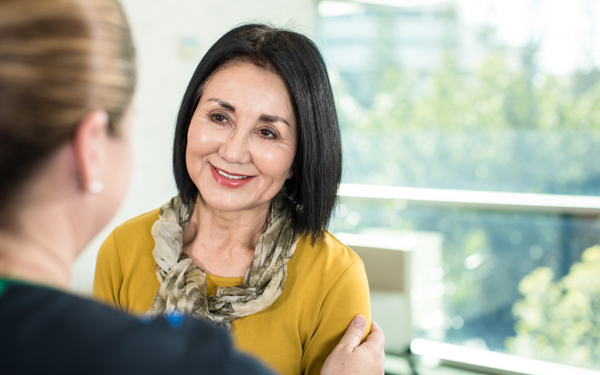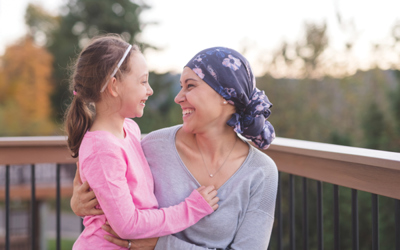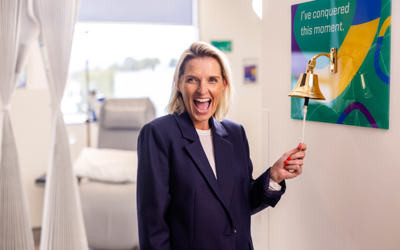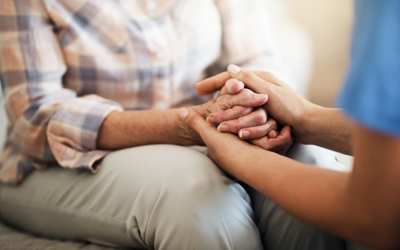Lymphoedema and cancer treatment
Lymphoedema is characterised by swelling of a limb and/or parts of the body caused when the lymphatic system does not function properly. The swelling occurs as a result of impairment in the normal process of lymph drainage in the affected part of the body. The lymphatic system plays an important role in the body’s defence against infection by filtering and removing bacteria.
Individuals who have undergone surgery or treatment for breast cancer that extends to the armpit may be susceptible to lymphoedema. We encourage you to speak with your surgeon, oncologist, breast care nurse or lymphoedema therapist about your specific risk factors for lymphoedema.
What causes lymphoedema?
There are two types of lymphoedema: primary and secondary lymphoedema.
Primary lymphoedema is the result of a congenital abnormality of the lymphatic system or part of it
Secondary lymphoedema can result from damage to the lymphatic vessels and/or lymph nodes. This may be from surgery, the lymph nodes being removed, and/or radiotherapy. Other causes include trauma, infection, obesity and immobility.
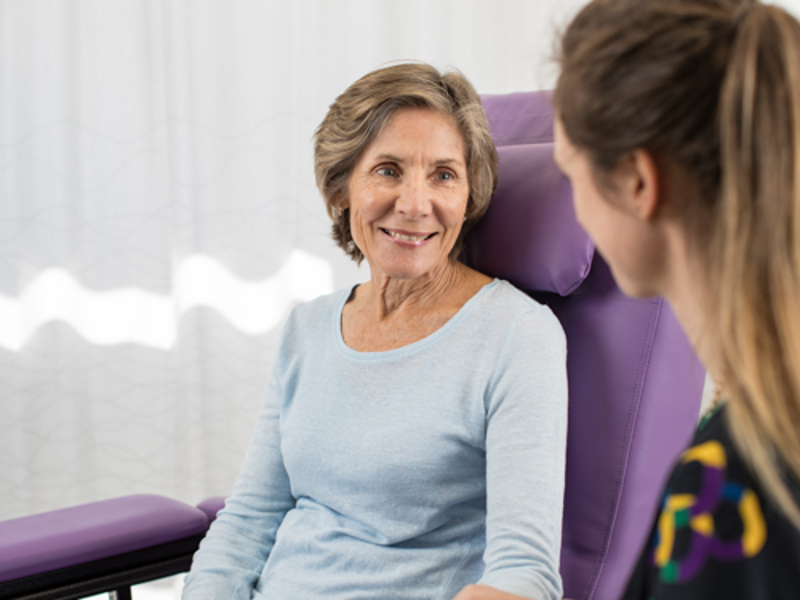
What are the signs and symptoms of lymphoedema?
Lymphoedema can be recognised by an unexplained swelling. Early signs and symptoms include a dull heaviness, aching or a feeling of fullness in the arm, and rings/jewellery or clothing may feel tight. Over time this swelling increases and can lead to a feeling of heaviness and discomfort in the area. If left untreated, lymphoedema can lead to loss of mobility and the skin becomes prone to infection.
How can lymphoedema be prevented or managed?
Early detection and management of lymphoedema helps to promote better outcomes. There are effective treatment programs that can reduce your symptoms, decrease your swelling and teach you how to self-manage your lymphoedema at home. Simple compression garments are a cost-effective means of managing the condition along with massage and elevation of the affected area.
Lymphoedema screening at Icon
At Icon Cancer Centre, we are proud to provide on-site lymphoedema screening services for patients at some of our centres.
Screening allows for the detection of early stage lymphoedema before you experience side effects or visibly see any changes. For screening to be most effective, a pre-surgery baseline measurement and follow up screening using the SOZO device is recommended. International research has shown that regular screening, education, early detection and intervention of lymphoedema can assist in reducing the long-term impacts caused by the progression of the condition.
This screening service is delivered in partnership with accredited lymphoedema therapists who have extensive experience in the prevention and management of lymphoedema.
These clinics offer:
Baseline screening to identify your risk of developing lymphoedema
Thorough assessment of patients to identify their individual risk of developing lymphoedema using a SOZO® device, the latest technology for detecting earliest changes of cancer-related lymphoedema
Accurate and precise screening for the development and/or progression of lymphoedema, including pre-surgery and follow up screening
To make an appointment or to find out more information about our lymphoedema screening service, contact your nearest centre below.
If your local Icon Cancer Centre isn’t listed, please contact your local Icon team about lymphoedema screening and how they can help, or send us a message.

